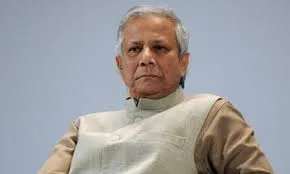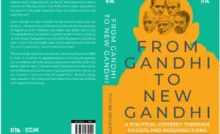Necessity for LGBTQ+ inclusion is inextricably linked to human rights law.
Today’s dynamic workplaces emphasize the need for environments that accommodate workers who identify as LGBT+, with diversity and inclusion becoming essential to organizational success. Drawing on data from a 2022 pulse survey of 5,474 respondents in 13 countries, the Deloitte Global 2023 LGBT+ Inclusion @ Work report is a noteworthy addition. This thorough study explores the particular difficulties that the LGBT+ population faces at work, highlighting the necessity for businesses to reaffirm their commitment to inclusivity. The report, which was carried out in January and February of 2023, illuminates the uneasiness that many LGBT+ workers have while disclosing their identities in public.
Significant geographical differences are brought to light, such as the sharp difference between the global average of 42% and the 70% of LGBTQIA+ employees in India who experience non-inclusive behaviour. The significance of addressing inequities and fostering inclusive workplaces globally is made apparent by these findings for organizations.
Simultaneously, McKinsey & Company contributes significantly to the discussion about LGBTQ+ inclusion in the workplace by publishing insightful articles. While recognising that organisations frequently fall short of attaining full LGBTQ+ inclusion, McKinsey emphasises inclusive language to create a safe environment for LGBTQ+ employees. The article analyses the difficulties experienced by the LGBTQ+ community and promotes active allyship and inclusion measures to address shortcomings. In addition to focusing on specific problems like supporting gender identity diversity alongside sexual orientation diversity and being transgender at work, the article offers significant steps that companies may take to foster a more inclusive workplace.
A recently released report from the International Labour Organisation (ILO) emphasizes the need for a national policy and labour legislation review, which is another step towards promoting LGBTQ+ inclusion in the workplace. In order to identify areas for improvement, this report attempts to evaluate the work policy environment for LGBTQ+ individuals. Significant steps include consulting with LGBTQ+ communities, having social conversations with employers’ and workers’ organizations, and forming alliances with a variety of organisations. Essential strategies include offering gender-neutral facilities, refraining from gendered workplace attire, and addressing worries about traveling for business to locations where employees may experience harassment or violence because of their gender identity. Other important measures include providing training, assisting LGBTQ+ worker resource organisations, and putting inclusive company practices into effect.
The global necessity for companies to actively build inclusive workplaces, address the issues that the LGBTQ+ population faces, and adopt significant measures for change is reinforced by these narratives taken together. In keeping with these efforts, articles like “The Value of LGBTQ+ Diversity and Inclusion in the Workplace” by Prof. Debolina Dutta and Prof. Vasanthi Srinivasan from IIM Bangalore, and “Making Workplaces Truly LGBT-Inclusive” by Profs. Premilla D’Cruz and Ernesto Noronha of IIM Ahmedabad offer insightful recommendations to advance LGBTQ+ inclusion in the workplace. Professors at IIM Ahmedabad suggest achievable measures including forming affinity groups, diversity and sensitivity training, inclusive healthcare benefits, and strict non-discrimination regulations.
In order to establish an inclusive culture, they emphasize the significance of actively promoting LGBTQ+ visibility and encouraging leadership dedication and allyship. At the same time, professors at IIM Bangalore explore the commercial benefits of LGBTQ+ inclusivity, stressing the necessity of taking steps and being dedicated to creating a truly inclusive workplace. They highlight organizations with practical techniques to cultivate an environment that embraces diversity across sexual orientations and gender identities, emphasizing the emotional and practical benefits of LGBTQ+ inclusion and its ethical alignment for organizational success.
The necessity for LGBTQ+ inclusion in the workplace is inextricably linked to human rights law, particularly the basic principles of equality and non-discrimination. In line with the international standards for human rights, the Deloitte report, McKinsey article, IIM Ahmedabad and IIM Bangalore articles, and other sources support the idea of workplaces free from discrimination based on sexual orientation and gender identity. The demand for strong laws, allyship, and inclusive behaviours indicates the dedication to preserving the values contained in numerous human rights treaties. In addition to being morally correct, organizations that support LGBTQ+ inclusion promote the cause of human rights by creating conditions in which all people, regardless of gender identity or sexual orientation, have equal access to opportunities and rights.
The movement for LGBTQ+ inclusion is essentially a reflection of the global effort to advance human rights principles within the framework that exists in contemporary workplaces. It represents a concerted effort to establish work environments that uphold the equality and non-discrimination principles inherent in international human rights law, promote diversity, and respect individual identities. Organizations can enhance their success and promote global human rights by actively implementing these methods and developing inclusive cultures.
Anwesha Ghosh, is Research Scholar, Department of Law, School of Legal Studies, Central University of Punjab, Bathinda.
Sachin Singh Parihar is Research Scholar, Department of Law, School of Legal Studies, Central University of Punjab, Bathinda.










